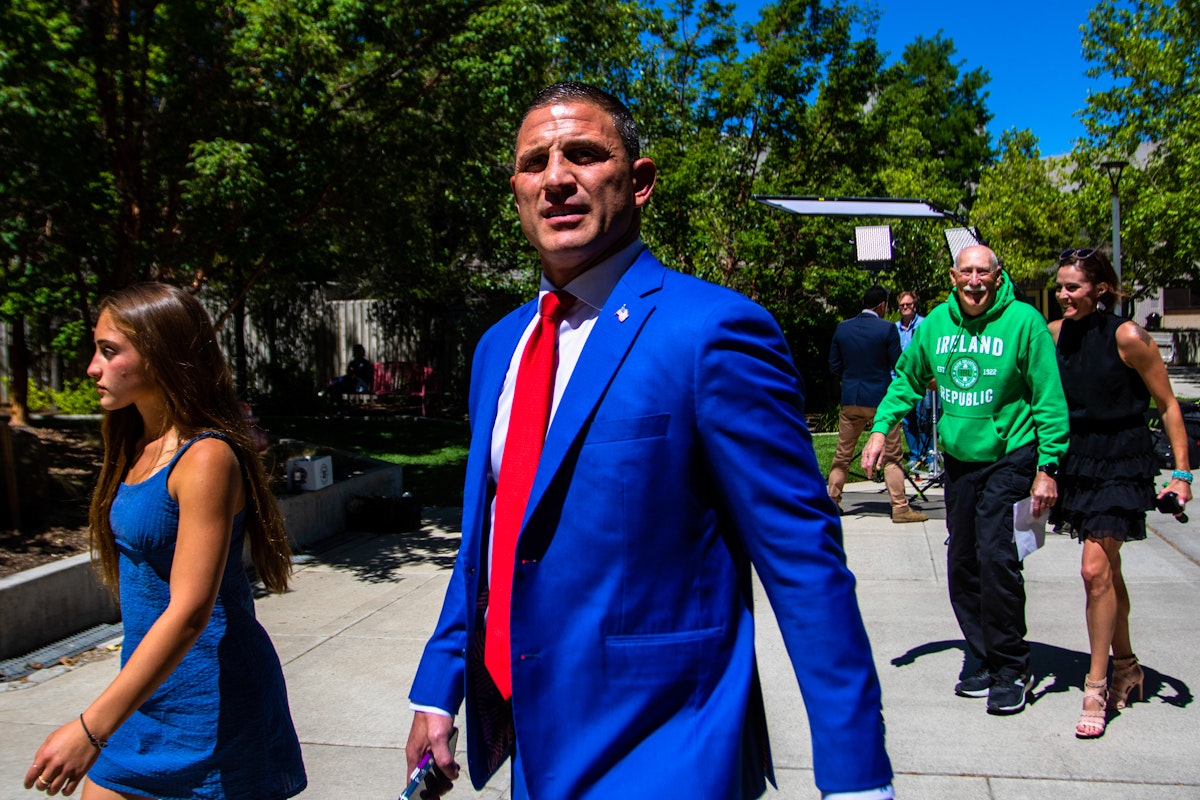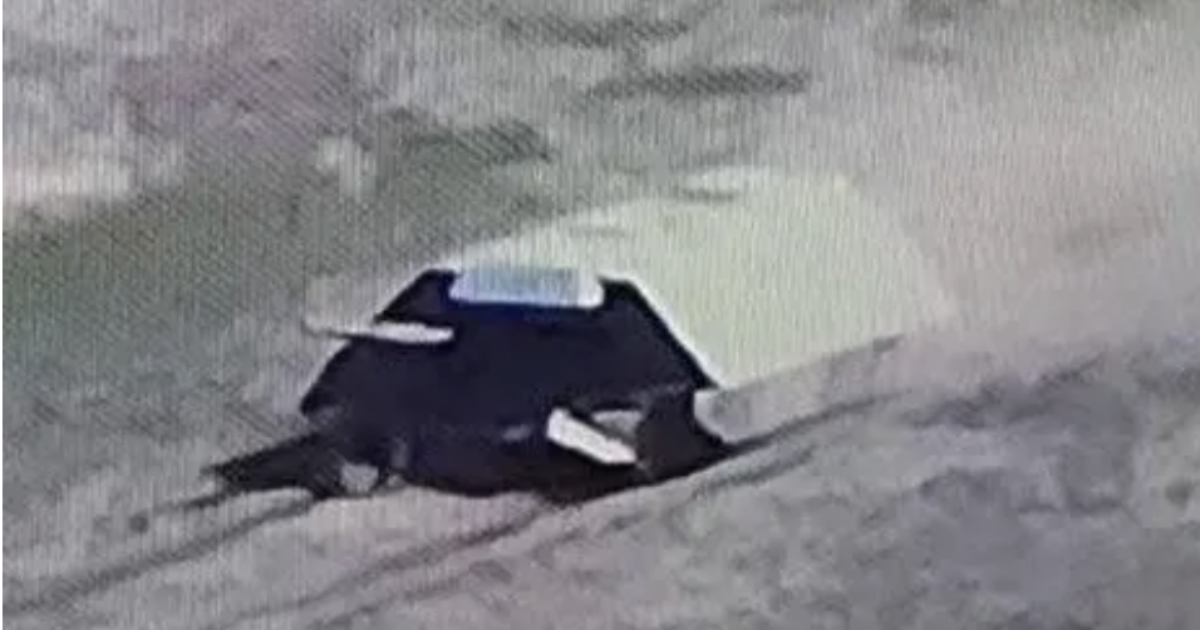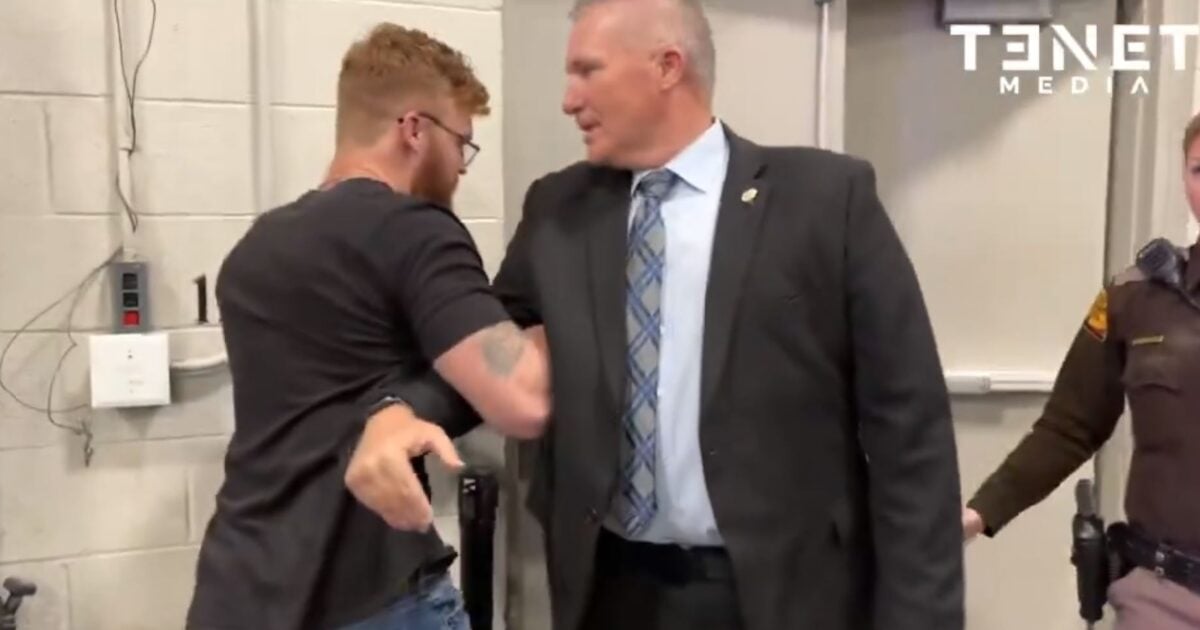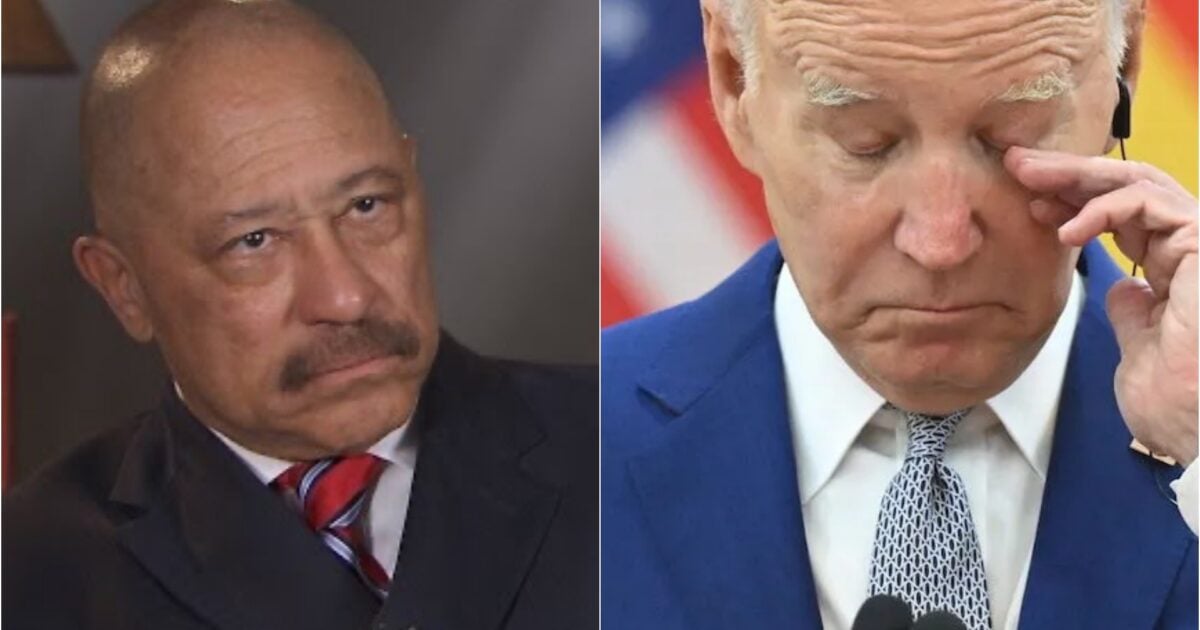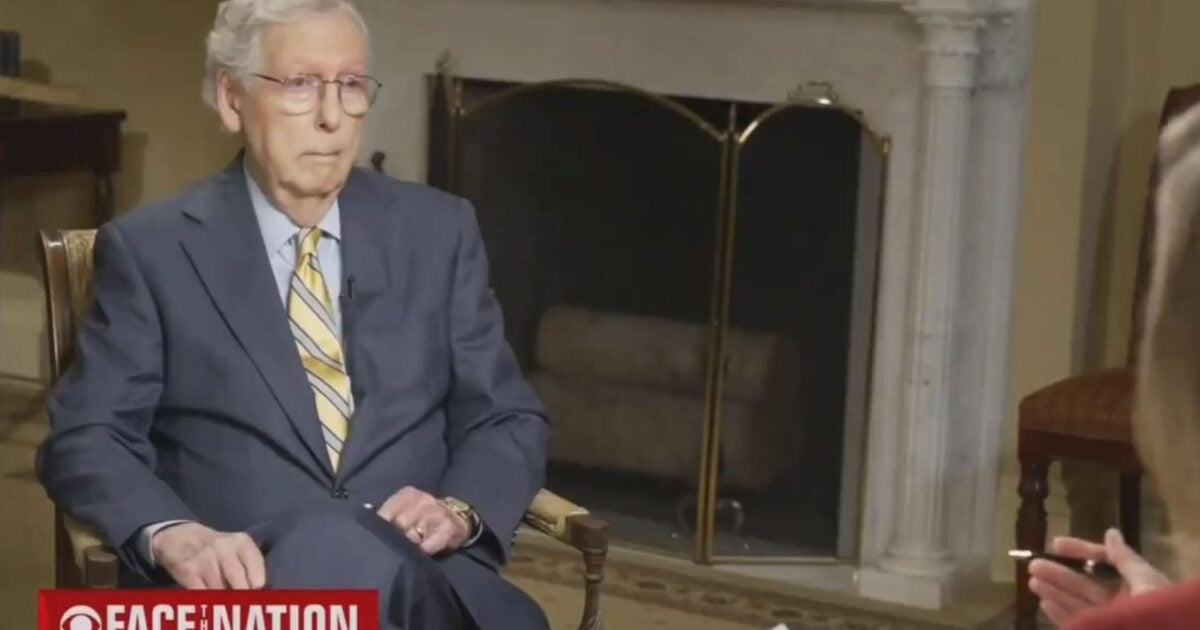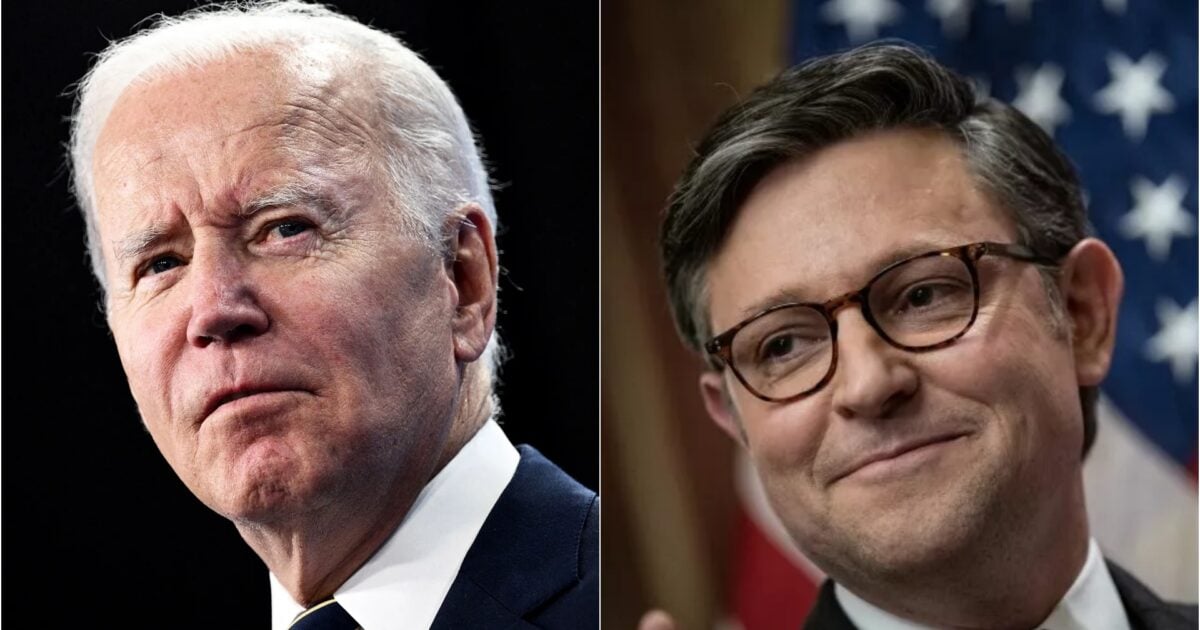The culture wars that divide American society can be stressful. They can be corrosive to public faith in institutions and in our trust for one another. But if you play your cards right, they can also be somewhat lucrative.
Look no further than Douglas County, a small, rural county in western Nevada. It covers an idyllic stretch around the southern coast of Lake Tahoe and the mountain-ringed valleys south of Carson City, the state capitol. Just under 50,000 people call it home. If you are ever in the area in mid-to-late September, I highly recommend visiting the Candy Dance in Genoa.
Douglas County residents, like many rural Nevadans, tend to be more conservative than the big cities of Las Vegas and Reno. The county voted for former President Donald Trump in a roughly two-to-one margin during the 2020 presidential election. In 2022, Douglas County residents also unseated three members of the school board and elected more conservative members in their place.
Since then, there has been a dramatic shift in the tenor of local politics in Douglas County. Last week, the board narrowly voted 4-3 against dismissing superintendent Keith Lewis after disputes ignited between him and some of the board’s more conservative members. Among the controversies are a proposal made by the board earlier this year to bar transgender students from local athletic competitions, as well as the board’s decision to hire a minor MAGA personality as its new in-house lawyer—and to compensate him well for it.
Joey Gilbert, a Reno-based lawyer and former boxer, was hired by the board in July after it parted ways with the law firm it had retained for almost 25 years. The firm had reportedly been reluctant to defend the district’s proposal in May to bar transgender students from local athletic competitions, a move that would likely get it kicked out of Nevada’s interscholastic matches. Gilbert stepped in to fill the gap.
Since then, some of the board’s members have questioned the terms and legality of the contract to which he was signed, as well as the compensation that Gilbert receives. According to a local news outlet, the previous law firm charged an average of $18,000 per month for legal services. Gilbert charged more than $35,000 in August, the first month of his contract, and more than $74,000 in September. Those are substantial sums for a small county budget.
Gilbert himself is a familiar face for northern Nevadans. He first broke into the public spotlight as an amateur boxer at the University of Nevada, which led to him getting cast on a NBC reality boxing show in 2005 and becoming a local celebrity of sorts. In between boxing matches, Gilbert also attended law school and passed the bar exam.
He eventually opened a practice in Reno that specializes in personal-injury cases, DUI charges, family law, and the like. Gilbert’s boxing career helped bolster his legal one: Billboards along the freeways in northern Nevada often faced him staring straight at the driver, both fists extended outwards, as if he were about to bump fists with an opponent before a match. (Think Better Call Saul meets Rocky.)
Gilbert had no real history of political activism for most of his career. He was just one of the countless small-city sports heroes whose post-athletic businesses dot the American landscape. But the COVID-19 pandemic changed things. A few months after it struck the United States, Gilbert began representing local doctors who wanted to prescribe hydroxychloroquine to COVID-19 patients and spoke out against local mask mandates and public-health restrictions. He has referred to the pandemic as a “plandemic,” suggesting that it came about as the result of some nefarious conspiracy.
He also delved further into far-right politics. On January 6, 2021, Gilbert was in Washington, D.C., taking part in the protests that eventually stormed the Capitol. (The former boxer was outside the building and did not appear to take part in attacking it.) He has also appeared at events hosted by organizations involved in the “constitutional sheriff” movement, which believes that local sheriffs have a duty to enforce the Constitution that supersedes that of other elected officials. After protesters heckled then-Governor Steve Sisolak and his wife at a Las Vegas restaurant last year and said that he should be strung up from lampposts for their handling of the pandemic, Gilbert wrote on Facebook that Sisolak “absolutely deserved it.”
In 2021, Gilbert entered the GOP primary for the Nevada governor’s race, where he lost to now-Governor Joe Lombardo by roughly 26,000 votes. He mounted a series of legal challenges that failed and requested a recount that confirmed his loss. Undeterred, Gilbert refused to acknowledge his defeat in a video posted by his campaign last August. “How can you concede you lost something that was—in fact—illegally taken from you?” he claimed. Under Nevada law, a candidate who pursues a recount must foot the bill for it. Gilbert ultimately faced more than $250,000 in legal fees and recount fees for challenging the results.
While a primary candidate, Gilbert leaned on his own background as an athlete to argue against allowing transgender athletes to compete in sports based on their gender identity. “Competitive sports at any level—high school or beyond—have always been—to me—rightfully separated into men’s and women’s categories: ‘men’ and ‘women’ being defined by their physiological make-up—and not by their psychological feelings,” he told The Nevada Independent in April 2022.
That apparently made him an attractive pick for the Douglas County School Board as it began to consider a ban on transgender athletes earlier this year. Maupin, Cox, and Legoy, the board’s longtime legal firm, advised the board that adopting the policy could violate the state’s Equal Rights Amendment, which goes further than the federal Constitution on sex discrimination. The firm’s lawyers also warned that the Nevada Interscholastic Activities Association could impose sanctions and exclude Douglas County students from all state competitions.
Board members then began looking for new legal counsel. “I’ve been witnessing the downhill spiral that our nation has been on since the 1960s, but the rapid acceleration toward communism, Marxism in the last decade is particularly appalling,” Doug Englekirk, one of the board’s trustees, reportedly said during the meeting where Gilbert was hired. “My concern is that we are not wise counsel [sic] on how to effectively counter the negative influences that are affecting our schools.”
Lewis, the superintendent, had urged the board to not drop the then-current firm in July, citing Gilbert’s lack of experience. “While I understand my opinion probably means nothing, I believe strongly that DCSD has been well served by Maupin, Cox and Legoy,” he told board members in an email obtained by the Independent. “Education law is very complicated, and especially when it comes to employee and special education law. It could be extremely costly to the district if we hire counsel that does not have the expertise required in today’s litigious world.”
When the board voted against ending Lewis’s contract as superintendent during last week’s meeting, many students, parents, and alumni spoke out against the move, including multiple speakers who identified as conservative in the bright-red county. That likely helped tip Englekirk, one of the board’s more conservative members, into voting to retain Lewis. He urged Lewis and Gilbert to find a productive way forward for the country’s own good.
The controversy likely won’t end there. While the board paused its transgender-student policy change in May, it could revisit it again in the future. (It is unclear whether there are even any out transgender student-athletes in Douglas County.) And even if it doesn’t, Gilbert’s lucrative compensation from the board will likely draw further questions in the months ahead. Some board trustees have also questioned the legality of the contract, claiming they didn’t vote on the one that ultimately went into force.
In the meantime, Gilbert is flying high. Nevadans have always found ways to make money out of thin air in the state’s high deserts—whether it be from mining, gambling, or tens of thousands of dollars in monthly legal fees in a school district with only about 5,000 students.


